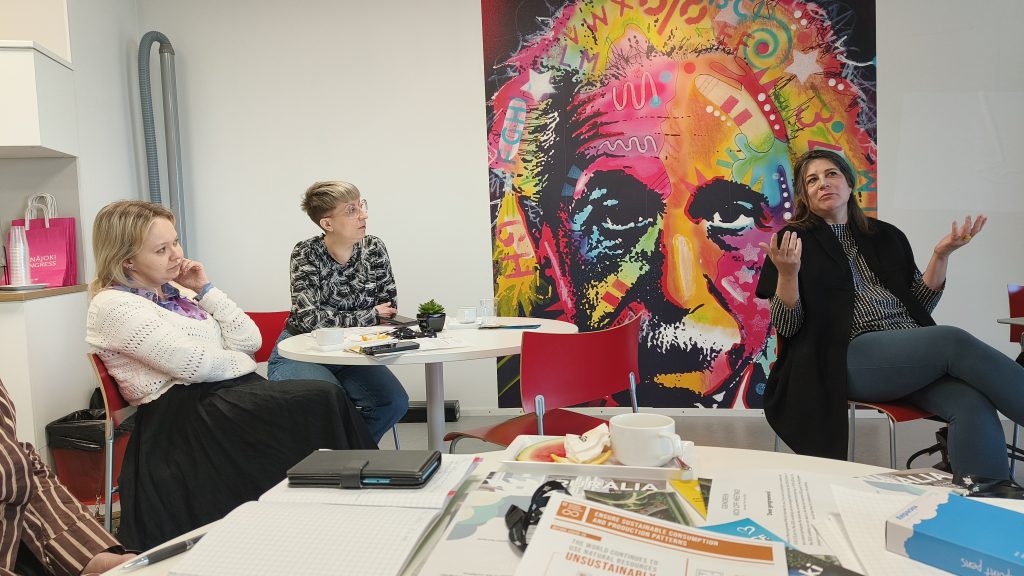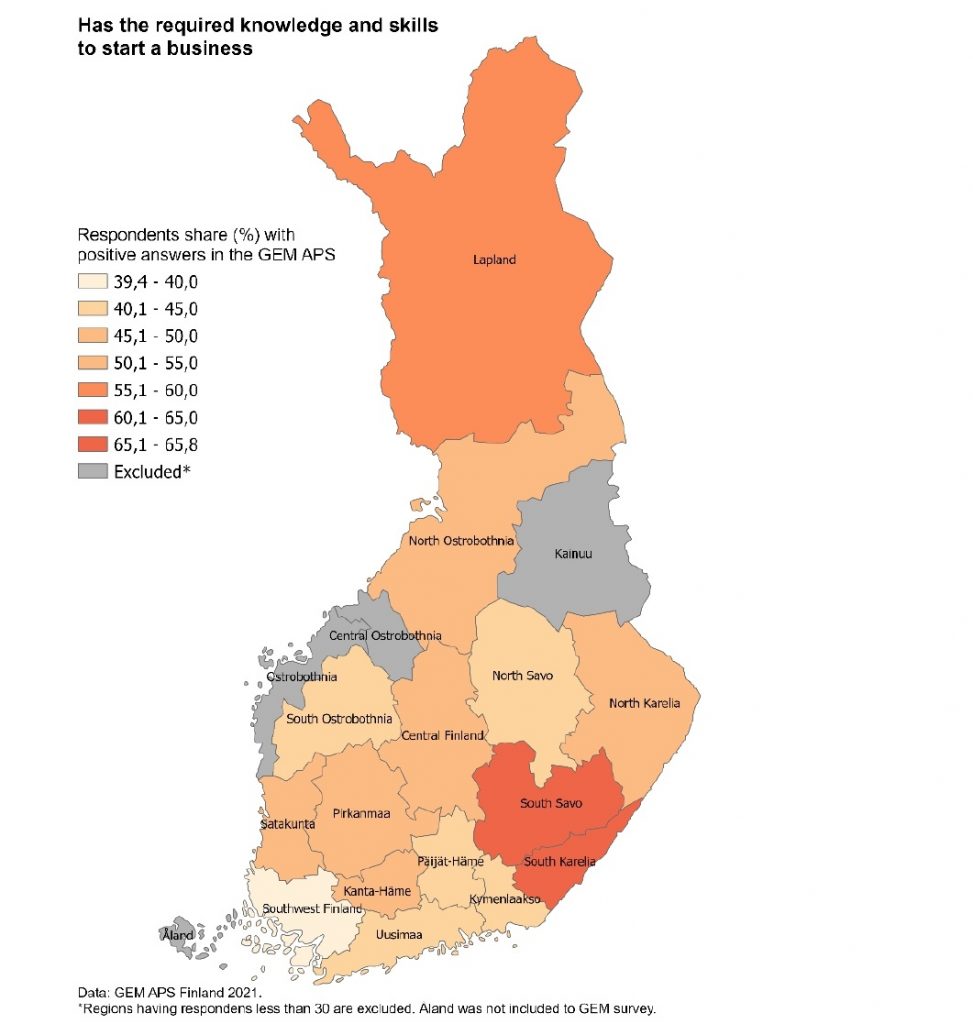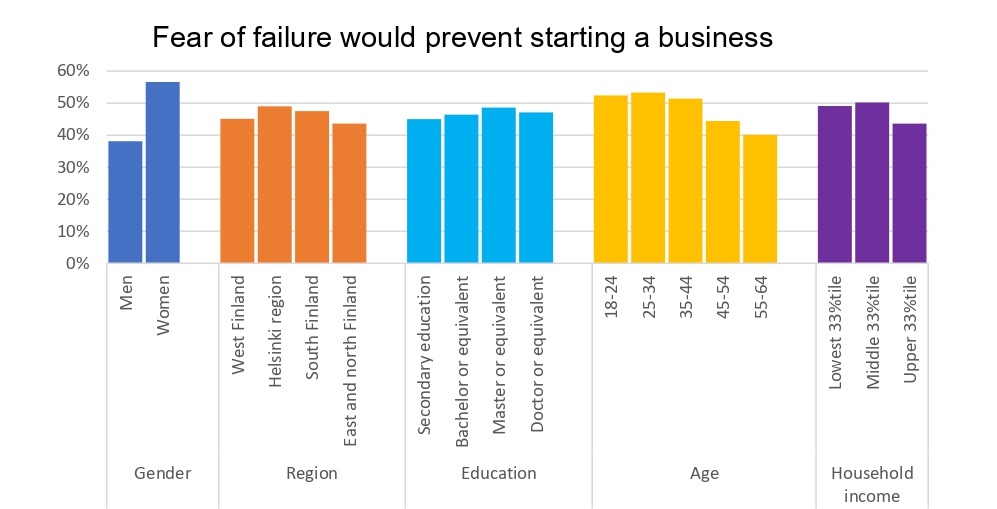
Mira Valkjärvi (left), Heli Salmela and Maria Miller are discussing about sustainable development goals in Gengreen´s kickoff meeting. Photo: Heidi Väliaho.
In the Nordic countries, there’s a rising focus on entrepreneurship, fostering the growth of new national ecosystems. Despite recent efforts to support female entrepreneurs, a noticeable gender gap persists. In Finland, only 34% of entrepreneurs are women, while in Sweden, the figure is 23%. Additionally, industries remain heavily gendered.
According to studies female entrepreneurs are lacking capital and technical assistance. They have fewer role models and smaller networks. Because entrepreneurship predominantly can be considered masculine phenomenon women are having hard time to find their place in the field. Women experience more discrimination, and they are the ones who bear the costs of parenthood.
How to bridge the gender gap in entrepreneurship, how to create mechanisms and tools to support female entrepreneurs? These were the main topics at the center of the discussion which took place in Seinäjoki on the 11th of April 2024.
Researchers and developers from the Interreg Aurora sponsored GENGREEN project met in Skaalamo, a new start up facility established by Into Seinäjoki. Skaalaamo will be, starting from May 2024, the physical place where regional entrepreneurs can meet, get trained, participate to workshops and events and exchange ideas and practices.
Discussion and debate were bustling. Mutual understanding among developers and researchers was that there is a strong need for safe places where female entrepreneurs can start to find their capabilities and flourish, but also where they can strengthen their resilience, acquire news skills and networking activities.
In the meeting it was decided that for the coming years these kinds of places will be launched in the form of Living Labs in South Ostrobothnia, Central Ostrobothnia, Lapland, Kirkenes and Norrbotten. The aim of the facilities is to provide knowledge, tools and networks for the women green entrepreneurs and tackle the society-related issues they face. Also, the Living Labs will provide an opportunity for stronger, cross-border networks.
Various studies show that women outperform environmental, social and governance metrics and they can create sustainable solutions that serve better to other women. That is the reason why especially green female entrepreneurship is needed and worth of extra support.
Silvia Gaiani, Ada Trogen and Hannele Suvanto
Writers are working in GENGREEN project which aims at supporting green (female) entrepreneurship, specifically micro and small/medium size enterprises, in South and Central Ostrobothnia, Lapland, Norrbotten, Troms and Finnmark through several activities.


